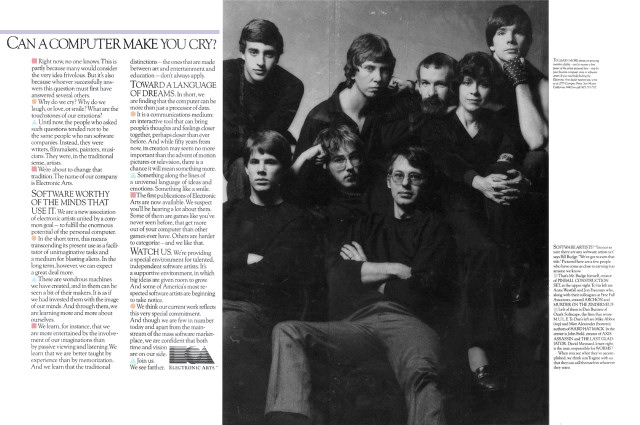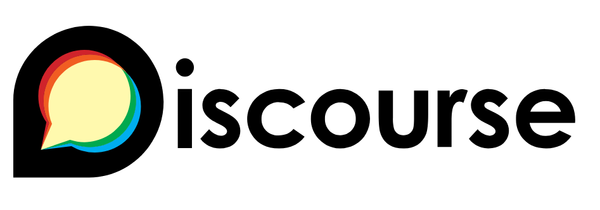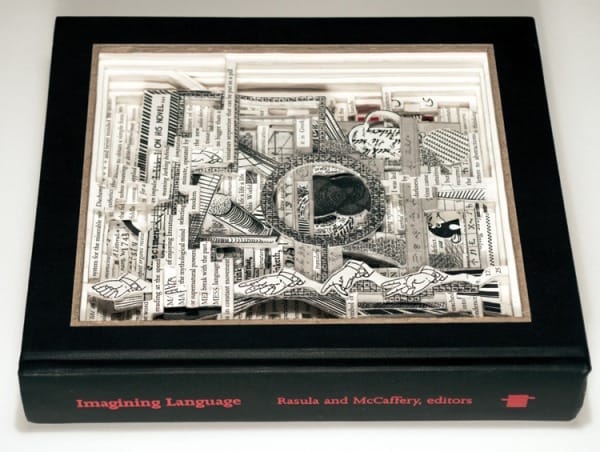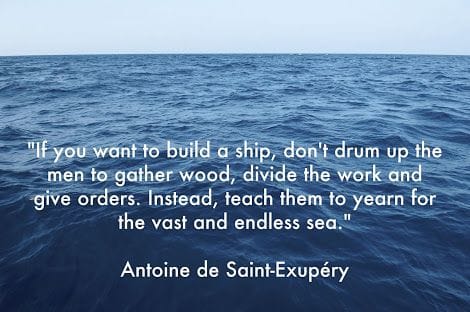EA’s Software Artists
Electronic Arts is a lumbering corporate megalith today, pumping out yearly game franchise after yearly game franchise. It’s easy to forget that EA was present at the very beginning of the computer game industry, innovating and blazing a trail for everyone to follow. Gamasutra’s article We See Farther: A History of Electronic Arts reminded me how instrumental EA was to the early history of computer gaming.
EA’s infamous “We See Farther” ad promoted computer game programmers as artists if not rock stars. I distinctly remember seeing these ads as a dorky, computer-loving teenager. I wondered, could being a computer programmer be... cool?

Okay, maybe not so much with the leather glove, but still. It was a glimmer of hope. According to Electronic Arts, computer programmers weren’t just programmers; they could be software artists. And the earliest EA games even looked like rock album covers:

EA also created the very concept of a sports game franchise, primarily with Dr. J and Larry Bird Go One on One. This game was huge. The squeaking sneakers, the smashing backboard, the licensed marquee players. It was arguably the breakthrough sports game.

It’s impressive that Electronic Arts is still around after all these years. But I wonder what happened to the grandiose sentiments expressed in the We See Farther ad:
These are wondrous machines we have created, and in them can be seen a bit of their makers. It is as if we had invested them with the image of our minds. And through them, we are learning more and more about ourselves. We learn, for instance, that we are more entertained by involvement of our imaginations than by passive viewing and listening. We learn that we are better taught by experience than by memorization. And we learn that the traditional distinctions – the ones that are made between art and entertainment and education – don’t always apply.
We’re providing a special environment for talented, independent software artists. It’s a supportive environment, in which big ideas are given room to grow. And some of America’s most respected software artists are beginning to take notice. We think our current work reflects this very special commitment. And though we are few in number today and apart from the mainstream of the mass software marketplace, we are confident that both time and vision are on our side.
I sure wanted to believe in software artistry at the time. EA’s history proves that this is an unusually difficult vision statement to realize.









